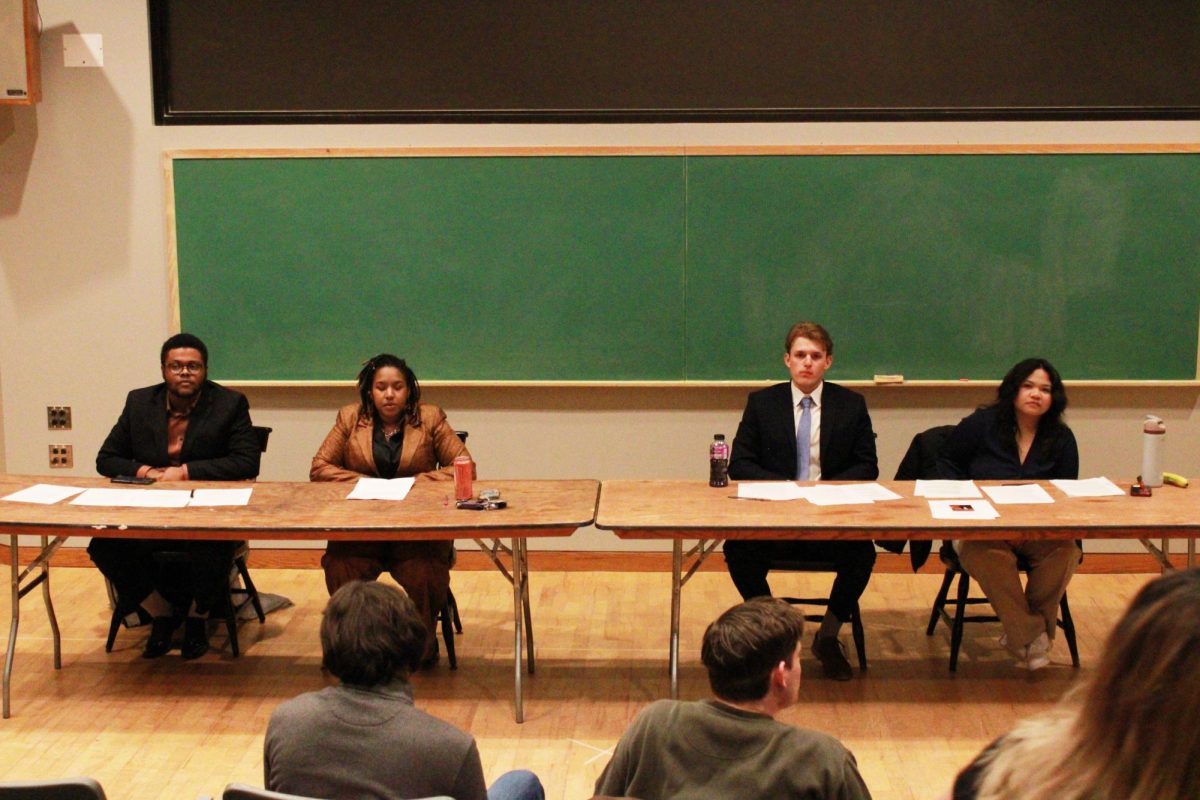After the initial voting last week did not garner enough student participation, students voted Wednesday in favor of extending the Honor Code.
School policy states that the student must vote in favor of the Honor Code every three years in order to perpetuate it.
The vote was extended after the original vote failed to garner necessary participation from the majority of rising sophomores, juniors and seniors.
A failure to extend the Honor Code would likely have led to massive changes in the way exams are administered and allegations of cheating and plagiarism are investigated.
“Any alleged cases of cheating or plagiarism would probably be handled by school officials in the Dean of Students office instead of being investigated by a student panel,” said Honor Committee Co-Chair Shawn Palmieri, ’11.
For Palmieri, the Honor Code fosters not just integrity, but respect.
“For me, the Honor Code is important to the academic environment at Allegheny because it fosters a mutual respect between faculty and students,” Palmeri said. “The Code promotes academic integrity and reminds us as students that our work is not only a reflection on ourselves, but on Allegheny College.”
According to Dean of Students Joe DiChristina, these changes would not only have affected administrative processes but would also shift the expectation of integrity.
“The Honor Code puts accountability on students, which is essential in becoming a scholar,” Dichristina said. “It gets down to who you are and you’re responsible for your actions. That’s what happens in the real world.”
Despite consistently overwhelming student support for the Honor Code over the years, some students have expressed concern that the enforcement process is in need of revision.
One such improvement was added last year when the enforcement of the Honor Code was amended to include the expedited process. This “fast track” allows students who admit to Honor Code violations to skip the time-consuming process of questioning by the Honor Committee and simply participate in a discussion with the faculty involved as well as representatives from the Honor Committee and the Dean of Students Office.
But such concessions are only granted to students who admit to breaking the Honor Code. For students who maintain their innocence, the process may not be so simple.
Aaron Ledbetter, ’12, was accused of violating the Honor Code by collaborating with a classmate on a take-home open-note extra credit assignment.
“When you go through the process, they question you and, to be completely honest, they don’t believe anything you say,” Ledbetter said. “They’ve already made their minds up. As bad as it sounds, that’s exactly what we felt, like they were making fun of us the entire time. There were points where they were not taking us seriously.”
Ledbetter and his friend were given the choice: admit to cheating and receive a light punishment or maintain their innocence and receive a far harsher punishment.
“In the end, we felt like they didn’t believe us at all,” Ledbetter said. “I figured, ‘I didn’t do anything. I’m just going to take the heavier punishment because there’s no way you’ll ever believe I’m innocent.’”
In spite of his experience, Ledbetter still supports the Honor Code.
“I believe in the Honor Code. I think we need an Honor Code. I think it looks great to the outside world,” he said. “I don’t think it’s run the way it’s supposed to be run, like a judicial system. It’s not innocent until proven guilty; here, you’re guilty until proven innocent.”
The next Honor Code Referendum will be held in April of 2014.
Categories:
Students vote for Honor Code extension
April 26, 2011
Story continues below advertisement
0
More to Discover








